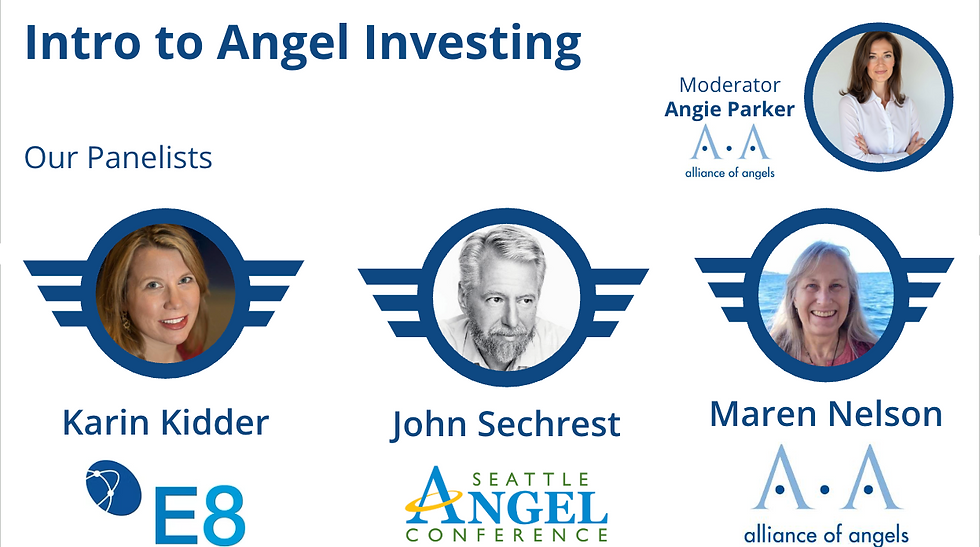Intro to Angel Investing
- Angie Parker
- Aug 27, 2025
- 2 min read

What Angels Are
Angel Investors must be accredited investors, meaning they meet any of the following wealth, income, or financial sophistication criteria:
Net worth over $1M, excluding primary residence (individually or with spouse/partner)
Income over $200,000 (individually) or $300,000 (with spouse/partner) in each of the prior two years, and reasonably expects the same for the current year
Investment professionals in good standing holding the general securities representative license (Series 7), the investment adviser representative license (Series 65), or the private securities offerings representative license (Series 82)
Directors, executive officers, or general partners (GP) of the company selling the securities (or of a GP of that company)
Any “family client” of a “family office” that qualifies as an accredited investor
For investments in a private fund, “knowledgeable employees” of the fund
Angels don’t just write checks. They also bring their experience, networks, and advice, which is often just as valuable for success at this early stage. They decide where to invest based on their interests and expertise, unlike limited partners (LPs) in venture funds, who do not have control over their investments. Venture Capitalists (VCs), on the other hand, deploy other people’s money (LPs).
As John Sechrest of the Seattle Angel Conference puts it, “If you are investing in a company and you have no value besides money to give, this is the wrong investment for you.” Yes, founders need the cash, but they also need advisors (often legal, accounting, and go-to-market), and well-connected angels to be successful and reach their next round of funding.
Differing Incentives Matter
Incentives and motivations between angels and VCs can vary significantly because of this. For angels, every dollar counts. They might be satisfied with a 5x return in a few years or with a founding team receiving a $50M acquisition. On the other hand, VCs aim for much larger returns, like billion-dollar IPOs. Their personal gains are linked to the overall performance of their fund and carried interest (or “carry,” the share of profits paid to them), rather than individual deals. Therefore, a modest success doesn’t significantly impact them.
Despite the “angel” name, this isn’t charity. The only way they make money is when their portfolio company (“portco”) exits, and they must trust it will offset all other failed investments. Of course, angel investors and early-stage VCs aren’t the only option for early-stage founders.
Are there other competitors?
Not exactly; however, there are alternative funding sources for founders who aren’t venture-scale. For instance, revenue-based financing might be a good fit. Maren Nelson, a board member of AoA, notes that "the terms of your deal can limit the types of investors you can attract."
The bottom line is that angel investing is about alignment, expertise, and structuring deals that work for both sides. For new angels, that means investing where you can add value beyond a small check. For founders, it means finding investors who believe in your vision and can help you get there.
Learn More
Watch our panel discussion with other angel investor groups from Seattle Tech Week 2025.


